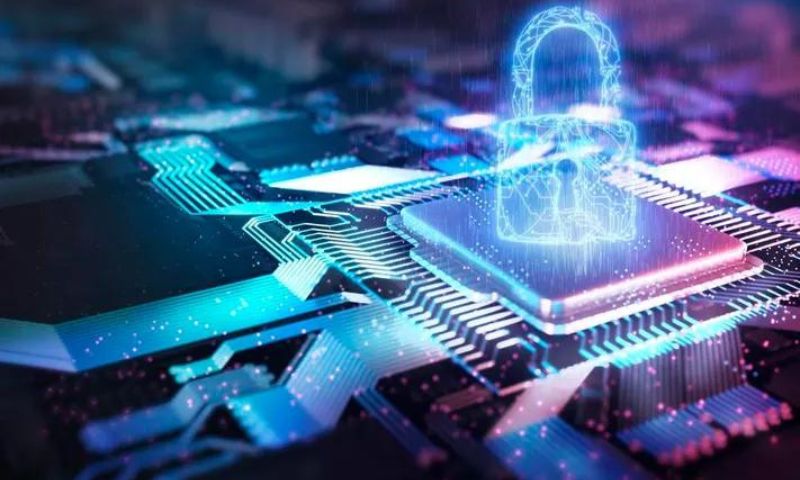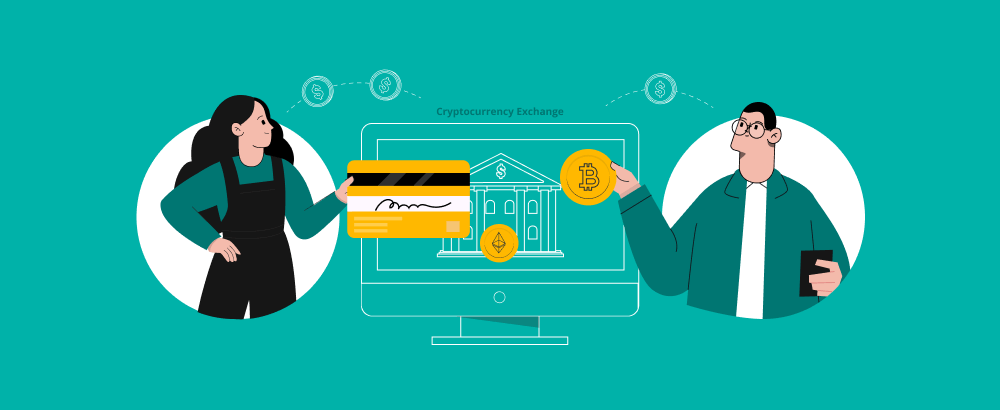How to Safeguard Your Crypto Private Key: Expert Security Tips
Your digital gold is only as safe as your private key. I’ll show you how to protect your crypto private key without fuss. Get ahead with steps that cut risk and lock thieves out. We’ll cover making keys no hacker can guess and wrap them in unbreakable code. Next, find how tech keeps your wealth secure from every angle. Get the upper hand on crooks with a plan that keeps your keys backed up and untouchable. Dive in, and let’s keep your assets locked up tight.
Understanding the Fundamentals of Crypto Private Key Security
The Importance of Secure Private Key Generation
Secure key generation is the first step to guard your crypto. Think of it like creating a special lock for a treasure chest, but way more complex. This key needs to be random and unique to you. This randomness is what makes your key secure. If it’s predictable, hackers can guess it. So, to make keys secure, use a crypto wallet that makes random keys.
A good wallet does this for you, preventing risks. It’s like a seed that grows into a strong tree, your digital asset security. By starting off with a strong seed, you create a base that’s hard to shake. The process is a bit like mixing a secret potion. Only you know the ingredients, and they need to be just right to work.
Keep the key a secret, always. If others find it, they can take your crypto. Writing down your key helps avoid loss. It’s best to write it by hand, not on a computer. Computers can have malware that reads what you type. For better safety, use paper that you can destroy easily, like with a shredder.
Store it in a place only you know about. This spot should be safe from fire, water, and thieves. A safe or a locked drawer is a good choice. Some people even use safety deposit boxes at banks. Remember, if you lose your key, you lose your crypto. So, make backups. Hide these in different spots, in case one gets found or destroyed.
Implementing Robust Encryption for Private Keys
After making your key, you must protect it. Encryption is like wrapping your key in armor. It scrambles your key into a code. Only with the right password (or passphrase) can you read it again. Think of it like a puzzle. Without knowing how the pieces fit, you can’t see the picture.
For good encryption, choose a long and tricky passphrase. Use numbers, letters, and symbols. But make it something you can recall. Don’t use your birthday or your pet’s name. Those are too easy to guess.
Then you need to pick how to encrypt your key. Some use special USB drives made just for crypto, called hardware wallets. They’re like tiny safes you can carry around. Others use software on their computer. But if your computer connects to the internet, stay alert.
Computers online face risks like viruses and hackers. To stay safe, some use an air-gapped computer. It’s a computer that never goes online. It’s like a journal that never leaves your room, so no one else can peek inside it.
Hardware wallets and encryption make your crypto tough to steal. Even if someone finds your key, without the passphrase, they can’t use it. It’s like they have the chest but can’t unlock it.
So, always remember: start with a random key, keep it secret, lock it up tight and make it tough to break. Then, keep your coin safe and sound!
Advanced Protective Measures for Your Digital Assets
Embracing Hardware Wallet Protection Protocols
Your crypto is like treasure. You must keep it safe. Think of hardware wallets as your modern-day treasure chest. They keep hackers away from your digital gold. Here’s how to lock it tight. First, always update your hardware wallet. Like feeding a guard dog, it needs to stay alert. Use a PIN that’s hard to guess. No, “1234” isn’t going to cut it. Be extra careful when setting it up. Do it away from prying eyes and cameras. And, if your wallet has a passphrase feature, use it. It adds a secret layer of locking. Make sure you remember your passphrase, though.
The Role of Multi-Signature Setups in Security Enhancement
Now let’s talk multi-signature setups, or multi-sig. It’s like needing several keys to open a lock. Many swear by its strength. Why? Because it spreads the risk. To move your crypto, you need approval from multiple devices or people. It’s great for groups or extra cautious folks. But set up multi-sig with care. You need to keep all keys secure. You also need backup plans if a key gets lost. In multi-sig, every signature is a powerful key. You lose one; you might lock yourself out. But get it right, and you own a fortress.
Protecting your crypto is serious business. Stick to these tips, and sleep easy knowing your digital assets have a strong line of defense. Always remember, the wall between your crypto and the bad guys is only as strong as you build it. Stay secure, friends.
Best Practices and Strategies for Key Management
Developing Comprehensive Backup Strategies for Keys
You need a backup plan for your crypto keys. A backup keeps your coins safe if you lose your key. Think about who you trust and who can help if you can’t use your key. You can use an air-gapped computer to store your key. It’s a computer that’s never online. This way, hackers can’t reach it.
Here’s what to do:
- Store backups in multiple places.
- Use metal backup tools, they last longer than paper.
- Make sure only you can get to your backups.
- Test your backups to see if they work.
Utilizing Two-Factor Authentication and Passphrase Best Practices
Two-factor authentication (2FA) adds an extra step to log into your account. It helps keep bad guys out. Use 2FA always for crypto accounts. Another tool for safety is a passphrase. A passphrase is like a password, but longer. It’s a line of random words which makes it stronger than just a password.
Make sure to:
- Use 2FA for all crypto accounts.
- Pick a strong passphrase with random words.
- Never share your passphrase with others.
- Change your passphrase if you think someone else knows it.
Using smart backup ideas and extra layers like 2FA and passphrases, you make it hard for anyone to steal your crypto. Always stay alert and keep learning about crypto safety to protect your coins.
Recognizing Threats and Safeguarding Against Them
Strategies for Avoiding Phishing Scams and Keyloggers
To keep your crypto safe, always stay alert. Phishing scams are tricky. They pretend to be trusted but aim to steal your private keys. Don’t click on odd emails or messages. If a deal seems too good, it likely is. Phishing emails look real but check the sender’s address. If it’s strange, don’t trust it. Also, watch for misspellings or bad grammar.
Keyloggers are sneaky. They hide in your device and record what you type. This can give someone your keys without you knowing. Use a good antivirus to block them. And keep your antivirus up-to-date. Always download apps from known stores. Avoid clicking on random ads or pop-ups.
Here’s a personal tip: touch typing helps too. It keeps your keystrokes harder to track.
The Critical Importance of Updating Security Software and Practices
New viruses come out all the time. This means you must always update your security software. Hackers find weak spots in old software versions. By updating, those holes get fixed. This keeps your crypto safe.
Regularly changing your password is smart. Choose a strong one every few months. Use different passwords for different sites too. And don’t forget two-factor authentication. It adds an extra step for anyone trying to get in. Think of it as a double lock on your digital door.
Network safety is crucial as well. Use a secure network for your crypto tasks. Public Wi-Fi is not safe for trading or managing keys.
Learn to avoid bad habits. Don’t leave your key info visible. If you write down your seed phrase, hide it well. Maybe even split it up in different places.
Most kids know not to take candy from strangers. Apply that thinking to crypto. Don’t accept random offers or help with your wallet. If you don’t know them, don’t trust them.
And remember, tech gets better every day. So should your security habits. Keep learning and stay safe.
In this post, we explored how to keep your crypto keys safe. We kicked off with the basics of secure key creation and strong encryption. Then, we stepped up to hardware wallets and multi-signature methods for even better security.
We discussed key backups and using two-factor authentication and strong passphrases. Lastly, we covered ways to avoid scams and the need for updates in security.
Staying secure takes effort, but it’s worth it. Your digital assets are precious. Keep learning, stay sharp, and make sure your crypto stays safe. Your future self will thank you.
Q&A :
How can I secure my cryptocurrency private key?
To secure your cryptocurrency private key, consider using strong and unique passwords, enabling multi-factor authentication, utilizing hardware wallets, and keeping the private key offline as much as possible. It’s also crucial to keep backup copies in secure locations and be wary of phishing attacks. Regularly update your software to ensure you have the latest security features.
What are the best practices for storing a crypto private key safely?
Best practices for storing a crypto private key safely include:
- Hardware Wallets: Store your private key in a hardware wallet, which is a physical device disconnected from the internet, reducing the risk of online theft.
- Paper Wallets: Write down the private key on paper and store it in a secure location, like a safe or a safety deposit box.
- Secure Backups: Create multiple secure backups of your private key in different locations.
- Encryption: Use strong encryption before storing the key digitally to protect it in case the storage medium is compromised.
What should you avoid doing with your crypto private key?
With your crypto private key, you should avoid:
- Sharing it with anyone or storing it on a device that is connected to the internet — it should remain confidential.
- Storing it in unencrypted files or on cloud storage services without proper security.
- Using easily guessable passwords or writing it down where it can be easily found.
- Keeping it in only one location where it can be lost or destroyed by physical damage such as fire or flood.
Can I recover my crypto assets if I lose my private key?
If you lose your private key, recovering your crypto assets is generally considered impossible, as the private key is required to authorize transactions from your wallet. This emphasizes the importance of keeping backups of your private key in multiple secure locations. Some wallets may generate a recovery phrase or seed phrase that you can use to restore your wallet – keep this safe as well.
Why is the private key so important for cryptocurrency security?
The private key is crucial for cryptocurrency security because it:
- Grants Ownership: It is the only way to prove ownership of your cryptocurrency and is used to sign transactions.
- Facilitates Transactions: Without access to your private key, you cannot authorize the transfer of your cryptocurrency to another wallet.
- Protects From Unauthorized Access: Keeping your private key secret prevents others from accessing your assets.
Proper management of your private key is essential in maintaining control over your digital assets.





